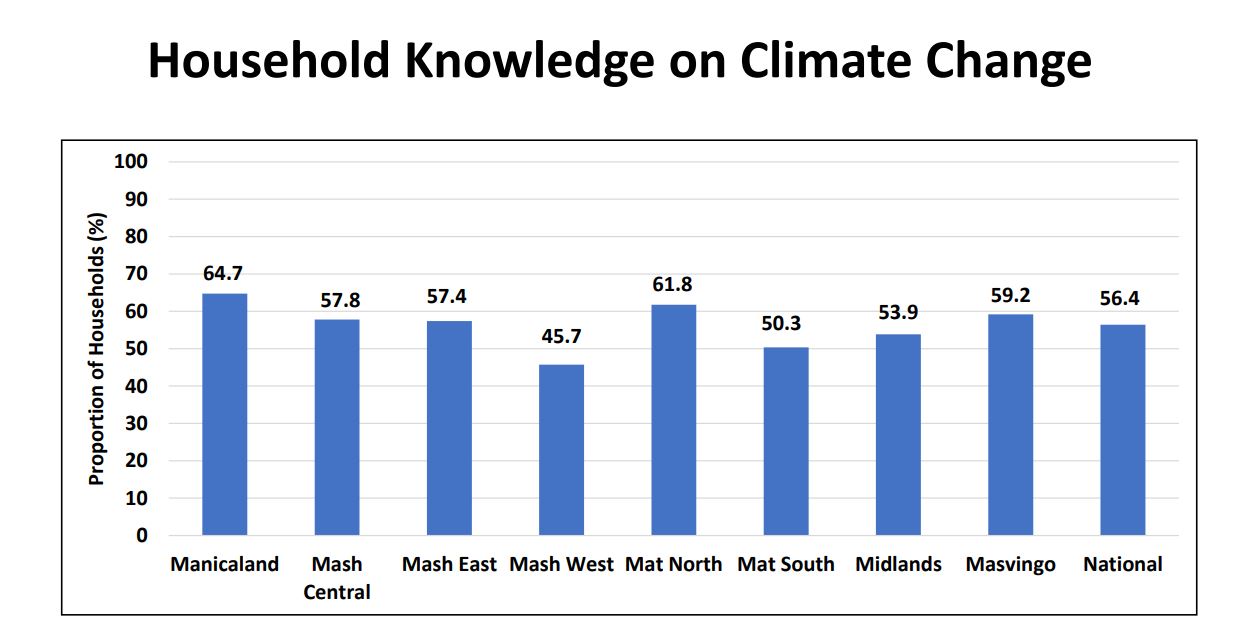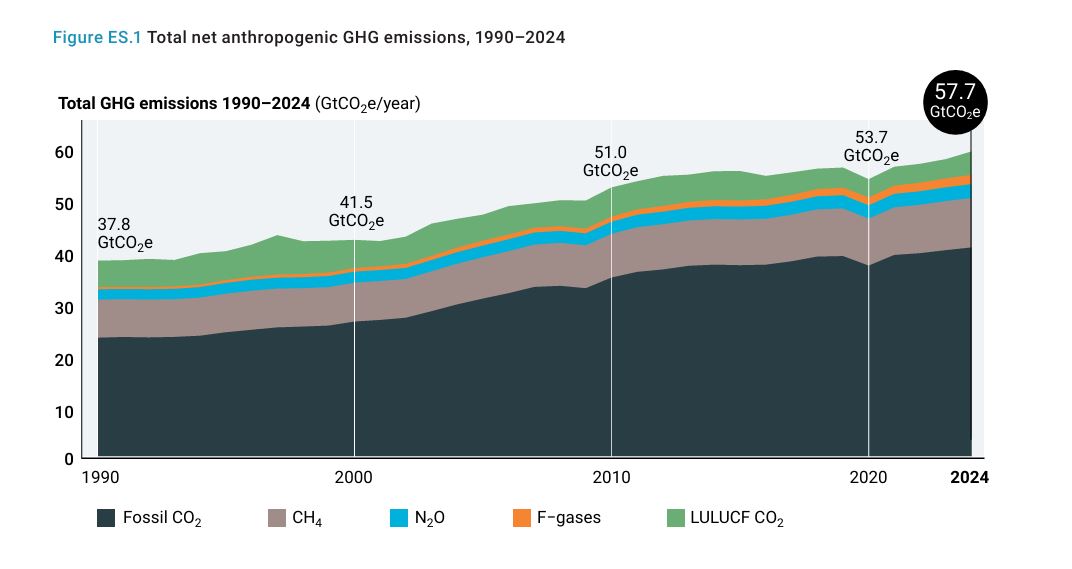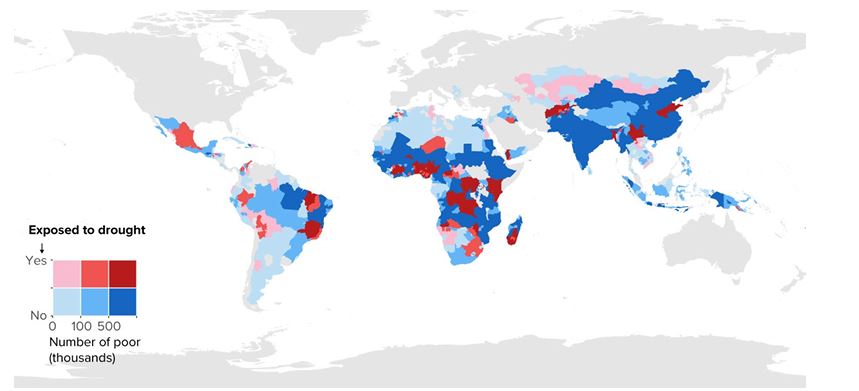Staff Writer
Over 40% of Zimbabwe’s rural households lack knowledge of climate change, a critical gap in a nation already grappling with a food security crisis exacerbated by extreme weather events, a new report shows.
According to the findings from the 2025 Rural Livelihoods Assessment, there is urgent need for enhanced awareness and educational programs to build community resilience.
The report, produced by the Zimbabwe Livelihoods Assessment Committee (ZimLAC), found that the national average of households with climate change knowledge stands at just 56.4%.
The knowledge gap is particularly acute in Mashonaland West, where only 45.7% of households reported an understanding of the issue, the lowest percentage nationwide. Matabeleland North showed the highest awareness at 61.8%.
“Manicaland (64.7%) had the highest proportion of households with knowledge on climate change while
Mashonaland West (45.7%) had the lowest,” the report shows.
The assessment links this knowledge gap to the significant shocks and stressors impacting rural livelihoods, noting that climate-related challenges are a major factor in the country’s food security challenges.
The report specifies that the perceived effects of climate change directly affect both food availability and access, making it more difficult for vulnerable populations to secure a reliable source of nutrition.
While the report notes a dramatic increase in total cereal production for the 2024-25 season, which is expected to reach nearly 3 million metric tonnes, the long-term threat of climate change remains a key concern.
The data suggests that without a deeper understanding of climate science and its effects, rural communities will continue to face vulnerabilities that undermine recent agricultural gains.
The ZimLAC report’s findings serve as a stark reminder that climate literacy is as crucial as agricultural policy in securing a sustainable future for Zimbabwe’s rural population.
Discover more from CLIMATE BRIEF
Subscribe to get the latest posts sent to your email.




